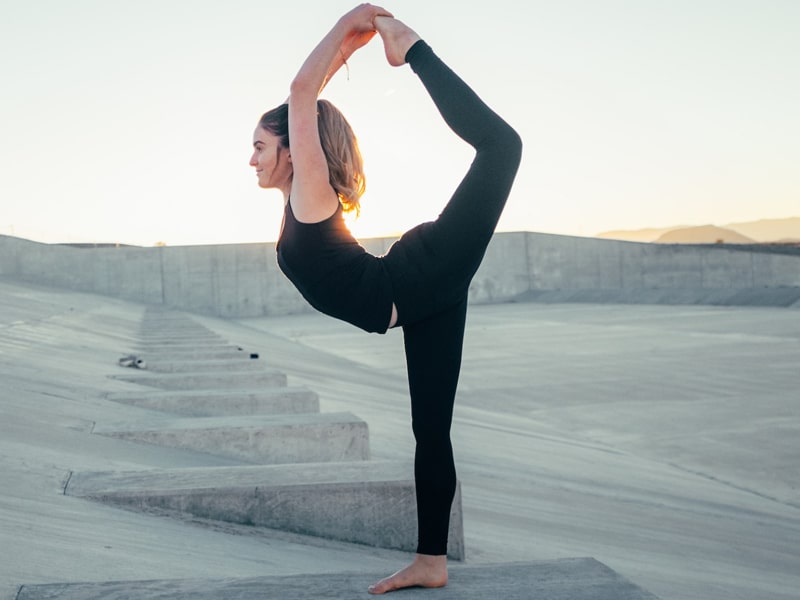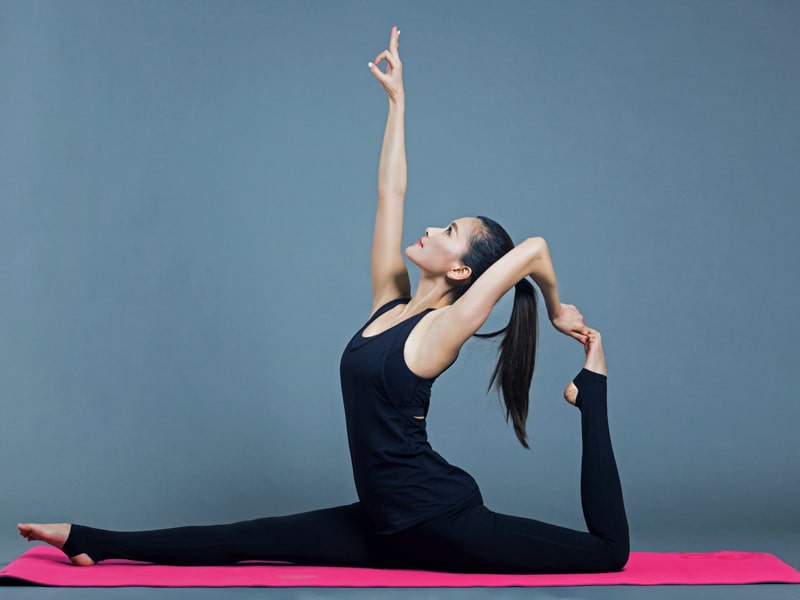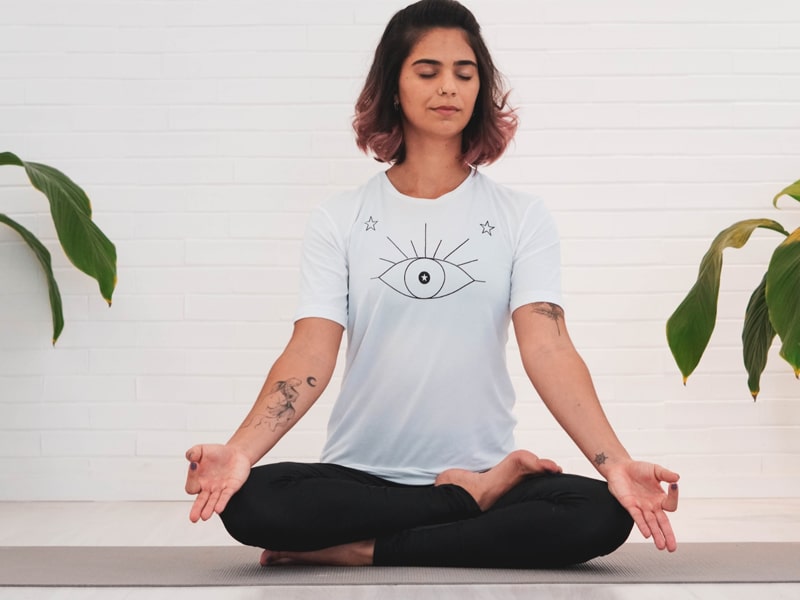Origin of Yoga
Ancient India and the Vedic Culture :- Yoga is deeply rooted in the ancient Vedic culture of India, which dates back thousands of years. The Vedas were a collection of sacred texts that provided guidance for every aspect of life, including physical, mental, and spiritual wellness. Yoga was seen as a way to promote balance and harmony in all aspects of life.
Development of the Yoga Sutras :- The first recorded references to yoga can be found in the Vedas, but it was not until the second century BCE that yoga was codified by Patanjali in his famous text, the Yoga Sutras. In this text, Patanjali outlines the eight limbs of yoga, which include ethical guidelines, physical postures, breathing exercises, and meditation.
Spread of Yoga to other parts of the world :- Yoga has been practiced in India for thousands of years, but it was not until the late 19th and early 20th centuries that it began to spread to other parts of the world. This was largely due to the efforts of yogis such as Swami Vivekananda, who introduced yoga to the West through his lectures and writings. Today, yoga is practiced by millions of people around the world and is widely recognized as a powerful tool for promoting physical and mental wellness.
Also Read :- Yoga Basics For Beginners – What You Need To Know
Evolution of Yoga
Patanjali’s Eight Limbs of Yoga :- Patanjali’s eight limbs of yoga, as outlined in the Yoga Sutras, provide a comprehensive approach to physical and mental wellness. These limbs include ethical guidelines, physical postures, breathing exercises, and meditation. They provide a roadmap for individuals seeking to improve their overall health and well-being.
Bhakti Yoga, Jnana Yoga, and Karma Yoga :- Over time, yoga has evolved and has taken on many different forms, including Bhakti Yoga, Jnana Yoga, and Karma Yoga. Bhakti Yoga is a devotional form of yoga that emphasizes the cultivation of love and devotion to a higher power. Jnana Yoga is a more philosophical form of yoga that emphasizes self-knowledge and wisdom. Karma Yoga is a form of yoga that emphasizes selfless service and the cultivation of inner peace and compassion. Each form of yoga offers its own unique approach to promoting physical, mental, and spiritual wellness, and each can be practiced on its own or in combination with other forms.
Modern interpretations and adaptations :- In recent years, yoga has evolved to include many different styles and interpretations. From Hatha Yoga to Bikram Yoga to Kundalini Yoga, there is a type of yoga for everyone, regardless of experience or fitness level. Additionally, many modern forms of yoga have incorporated elements from other fitness and wellness practices, such as Pilates, tai chi, and meditation.
Also Read :- 21 Best Yoga Books in English Language
Types of Yoga
Hatha Yoga :- Hatha Yoga is one of the most widely practiced forms of yoga and is characterized by its emphasis on physical postures, or asanas. It is a gentle form of yoga that is suitable for all ages and abilities, and is often used as a starting point for those new to yoga.
Ashtanga Yoga :- Ashtanga Yoga is a more vigorous form of yoga that is characterized by a series of flowing sequences of postures, or vinyasas. This form of yoga is known for its physical intensity and is popular among athletes and fitness enthusiasts.
Bikram Yoga :- Bikram Yoga is a hot yoga style that is performed in a room heated to 105°F. This style of yoga is characterized by a series of 26 postures that are performed in a specific order, along with two breathing exercises. Bikram Yoga is known for its ability to promote flexibility, balance, and strength.
Kundalini Yoga :- Kundalini Yoga is a form of yoga that is characterized by its focus on the awakening of the kundalini energy, which is said to reside at the base of the spine. This form of yoga incorporates physical postures, breathing exercises, and meditation, and is known for its ability to promote physical, mental, and spiritual wellness.
The Benefits of Yoga
Physical benefits :- Yoga offers numerous physical benefits, including improved flexibility, balance, and strength. It can also help to reduce chronic pain, improve posture, and enhance overall physical well-being. In addition, yoga has been shown to be effective in managing stress, which can have a positive impact on physical health.
Mental and emotional benefits :- In addition to its physical benefits, yoga offers numerous mental and emotional benefits. It has been shown to reduce anxiety, depression, and stress, and to improve mood and self-esteem. Yoga also promotes mindfulness and self-awareness, which can be a powerful tool for managing negative emotions and enhancing overall mental health.
Spiritual benefits :- Finally, yoga offers spiritual benefits that go beyond physical and mental wellness. Through its emphasis on mindfulness, breathing, and physical postures, yoga can help to promote inner peace, self-awareness, and a deeper connection to one’s true self. Additionally, yoga provides a framework for exploring one’s own spirituality, and can help individuals to feel more connected to something greater than themselves.
Also Read :- 9 Best Yoga Books in Hindi Language
Conclusion
In conclusion, yoga has a rich and fascinating history that dates back thousands of years to ancient India. Over time, the practice of yoga has evolved to include many different styles and interpretations, and today it is widely recognized as a powerful tool for promoting physical, mental, and spiritual wellness.
Today, yoga is more popular than ever, and for good reason. With its numerous benefits, both physical and mental, it provides individuals with a holistic approach to wellness that is easy to integrate into their daily lives. Whether you are looking to reduce stress, improve your physical health, or simply find a way to quiet your mind, yoga offers something for everyone.
In our fast-paced and often stressful world, yoga offers a path to inner peace and wellness that is truly invaluable. Whether you are a seasoned practitioner or just starting out, yoga has the power to transform your life and help you to live a more fulfilling and meaningful existence.
If you haven’t already, we encourage you to try yoga for yourself and experience the numerous benefits that this ancient practice has to offer. With its focus on mindfulness, physical postures, and breathing, yoga provides a unique and powerful path to wellness that is truly transformative. So why not start your journey today and see for yourself what yoga can do for you?



